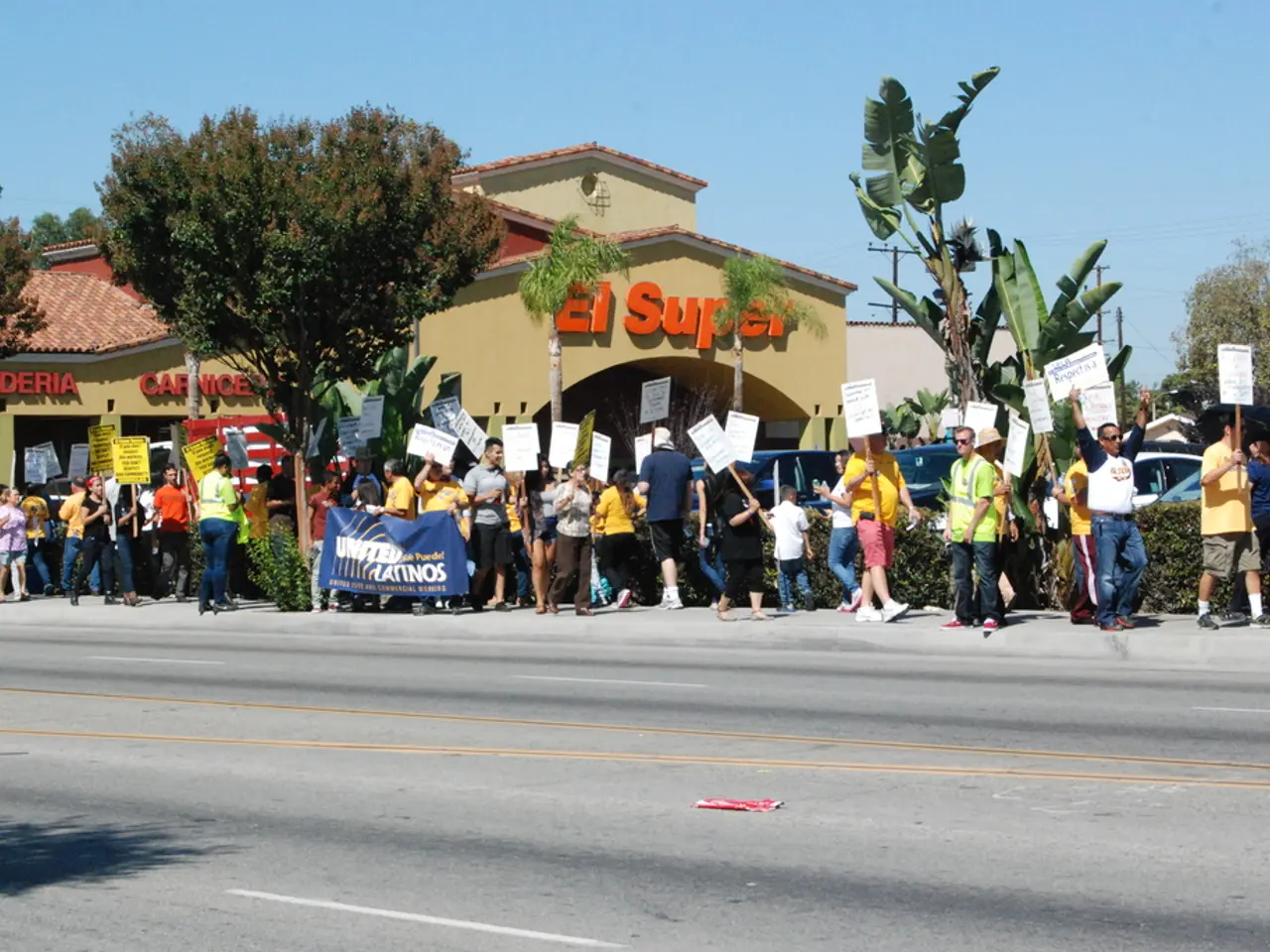CDP Leadership Shifts Towards Finding Political Consensus with LDP
Japan's Political Landscape Shifts as CDP Leader Seeks Common Ground with Ishiba Administration
In the ever-evolving landscape of Japanese politics, the head of the main opposition Constitutional Democratic Party of Japan (CDP), Yoshihiko Noda, is navigating a complex political terrain characterized by uncertainty and caution from other opposition parties. Noda's shift in approach, a stark contrast to his previous adversarial stance against Prime Minister Shigeru Ishiba, is in response to a surge in popularity for emerging political parties and the waning public support for well-established political parties, as demonstrated in the July 2024 election for the House of Councillors.
Noda, who emphasized his desire for 'resolution over confrontation' at a press conference on Aug. 8, has been leaning toward seeking common ground on policies with Ishiba's administration. This conciliatory stance is a significant departure from his previous adversarial position, signalling a strategic softening of opposition as right-wing populism grows stronger.
However, it is important to note that there are no indications of formal negotiations or potential policy agreements currently ongoing between Noda’s CDP and Ishiba’s administration. The future of the Ishiba administration remains uncertain, with internal party pressure for the Prime Minister to resign, but no immediate threat to his leadership or any moves to build opposition coalitions for no-confidence motions have materialized.
The overall political context is one of increased fragmentation, shifting away from the LDP's dominance towards a multiparty coexistence. This environment encourages dialogue, but no concrete policy agreements or negotiations specifically between Ishiba’s administration and Noda’s CDP have been reported. The CDP leader continues to face a precarious position due to a sense of growing caution among other opposition parties.
Public opinion shows slight improvement in Ishiba’s cabinet support, but the CDP’s support is relatively low and declining, which likely limits the CDP’s leverage in pushing for negotiated agreements with the government at this time.
In the face of these challenges, Noda aims to realize policy pledges made for the Upper House election. His statement borrowed a slogan from the rival opposition Democratic Party for the People, indicating a willingness to work across party lines to achieve common goals.
As the political landscape continues to evolve, the CDP leader's approach is likely to be influenced by the surge in popularity for emerging political parties and the need for cooperation to pass legislation in the increasingly fragmented parliament. The future of Japanese politics will be shaped by the ability of parties to find common ground and work together, as demonstrated by Noda's conciliatory stance towards the Ishiba administration.
[1] Source [2] Source [3] Source [4] Source [5] Source
Read also:
- Weekly happenings in the German Federal Parliament (Bundestag)
- Southwest region's most popular posts, accompanied by an inquiry:
- Discussion between Putin and Trump in Alaska could potentially overshadow Ukraine's concerns
- Tinubu's administration allegedly causing issues within every political party as Peter Obi's name surfaces - Obidient Movement asserts








